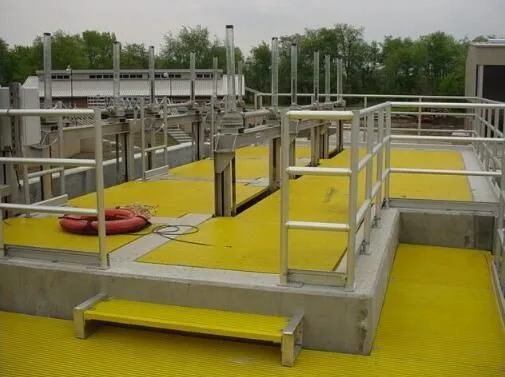Introduction
Fiberglass deck grating has rapidly become a preferred choice for industrial, marine, and recreational decking solutions. Known for its durability, lightweight structure, and resilience in harsh environments, fiberglass deck grating offers numerous advantages over traditional materials like steel and wood. Whether you’re looking for a low-maintenance solution or an option that provides high slip resistance, fiberglass deck grating stands out as a versatile and cost-effective choice for various applications. In this article, we’ll explore the key benefits, common uses, and essential factors to consider when choosing fiberglass deck grating.

fiberglass deck grating
What is Fiberglass Deck Grating?
Overview
Fiberglass deck grating is a type of flooring or decking material made from glass-fiber-reinforced plastic (FRP). It consists of a matrix of fiberglass strands bonded together by a resin, creating a durable, corrosion-resistant, and lightweight structure. These grates are typically used in areas where high strength, resistance to chemicals, and durability are required.
Manufacturing Process
Fiberglass grating is manufactured through two primary methods: molding and pultrusion. Molded fiberglass grating is produced by laying fiberglass strands in a grid pattern and pouring resin over them, while pultruded fiberglass grating is created by pulling continuous strands of fiberglass through a resin to form a more rigid structure.
Types of Fiberglass Deck Grating
- Molded Fiberglass Grating: Known for its high resistance to corrosion and superior load-bearing capabilities, ideal for environments with exposure to chemicals.
- Pultruded Fiberglass Grating: Offers a high strength-to-weight ratio, commonly used in applications requiring a higher stiffness and resistance to impact.
Advantages of Fiberglass Deck Grating
Fiberglass deck grating is packed with features that make it an excellent alternative to traditional decking materials.
- Lightweight and Durable: Fiberglass is lighter than metals like steel, making it easier to handle and install. It’s also exceptionally strong, providing long-lasting durability.
- High Corrosion Resistance: Unlike steel or wood, fiberglass resists corrosion from chemicals, saltwater, and other corrosive agents, making it ideal for challenging environments.
- Slip-Resistant Surface: Fiberglass grating offers a naturally slip-resistant surface, providing added safety in wet or high-traffic areas.
- Cost-Effective Over Time: With minimal maintenance needs, fiberglass deck grating proves to be cost-effective in the long run.
- Non-Conductive Properties: Its non-conductive nature makes fiberglass suitable for environments where electrical exposure is a risk.
- UV Stability and Weather Resistance: Fiberglass deck grating withstands UV exposure and extreme weather, ensuring it remains stable over time.
Common Uses of Fiberglass Deck Grating
Fiberglass deck grating is versatile enough to be used in a variety of settings:
- Industrial Decking and Platforms: Often used in factories, industrial walkways, and catwalks due to its durability and safety features.
- Marine and Dock Applications: Its resistance to saltwater and corrosion makes it ideal for docks and other marine environments.
- Water Treatment Plants: With a high resistance to chemicals, fiberglass grating is ideal for wastewater and treatment facilities.
- Recreational Areas and Theme Parks: Increasingly popular for public spaces due to its safety, strength, and low maintenance.
- Agricultural and Farming Uses: Excellent for farming applications as it resists animal waste and is easy to clean.
Fiberglass Deck Grating vs. Traditional Materials
Comparing fiberglass deck grating with other materials shows its superiority in terms of longevity, safety, and ease of maintenance.
- Fiberglass vs. Steel Grating: Fiberglass grating is lighter, non-corrosive, and requires significantly less maintenance than steel.
- Fiberglass vs. Wood Decking: Unlike wood, fiberglass doesn’t rot or absorb moisture, making it a better choice for wet environments.
- Environmental Impact: Fiberglass grating is long-lasting and doesn’t need frequent replacement, making it a sustainable choice over time.
Conclusion
Fiberglass deck grating is a smart, versatile choice for a wide range of industrial, marine, and public applications. Its durability, safety features, and cost-efficiency make it a compelling alternative to traditional materials like wood and steel. If you’re planning a project that demands strength, resilience, and minimal maintenance, fiberglass deck grating is worth considering. With the right choice and proper installation, it can serve as a long-lasting solution tailored to your specific needs.




























